detail profile frank zappa
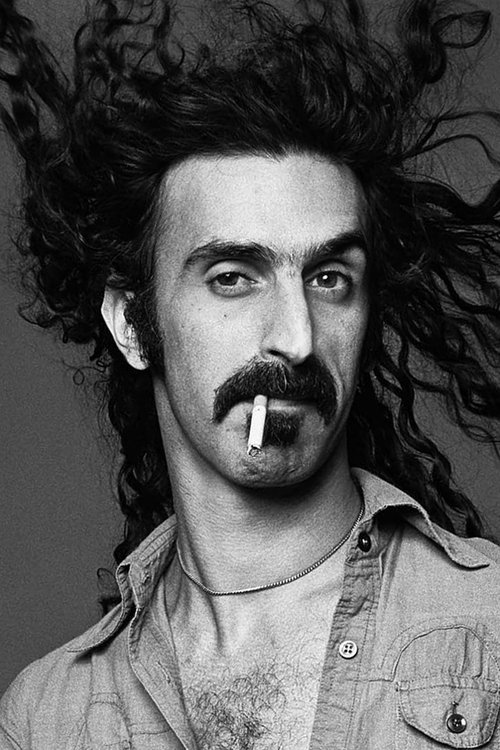
Frank Zappa
Zappa
atau dikenal sebagai
Riwayat Hidup
Frank Vincent Zappa (December 21, 1940 – December 4, 1993) was an American composer, singer-songwriter, electric guitarist, record producer and film director.
In a career spanning more than 30 years, Zappa wrote rock, jazz, electronic, orchestral and musique concrète works.
He also directed feature-length films and music videos, and designed album covers.
Zappa produced almost all of the more than 60 albums he released with the band The Mothers of Invention and as a solo artist.
While in his teens, he acquired a taste for percussion-based avant-garde composers such as Edgard Varèse and 1950s rhythm and blues music.
He began writing classical music in high school, while at the same time playing drums in rhythm and blues bands; he later switched to electric guitar.
He was a self-taught composer and performer, and his diverse musical influences led him to create music that was often impossible to categorize.
His 1966 debut album with The Mothers of Invention, Freak Out!, combined songs in conventional rock and roll format with collective improvisations and studio-generated sound collages.
His later albums shared this eclectic and experimental approach, irrespective of whether the fundamental format was one of rock, jazz or classical.
He wrote the lyrics to all his songs, which—often humorously—reflected his iconoclastic view of established social and political processes, structures and movements.
He was a strident critic of mainstream education and organized religion, and a forthright and passionate advocate for freedom of speech, self-education, political participation and the abolition of censorship.
Zappa was a highly productive and prolific artist and gained widespread critical acclaim.
Many of his albums are considered essential in rock and jazz history.
He is regarded as one of the most original guitarists and composers of his time.
He also remains a major influence on musicians and composers.
He had some commercial success, particularly in Europe, and for most of his career was able to work as an independent artist.
Zappa was posthumously inducted into the Rock and Roll Hall of Fame in 1995 and received the Grammy Lifetime Achievement Award in 1997.
Zappa was married to Kathryn J.
"Kay" Sherman from 1960 to 1964.
In 1967, he married Adelaide Gail Sloatman, with whom he remained until his death from prostate cancer in 1993.
They had four children: Moon Unit, Dweezil, Ahmet Emuukha Rodan and Diva Thin Muffin Pigeen.
Gail Zappa manages the businesses of her late husband under the name the Zappa Family Trust.
Description above from the Wikipedia article Frank Zappa, licensed under CC-BY-SA,full list of contributors on Wikipedia.
Info Pribadi
Peran Yang Di Mainkan Frank Zappa
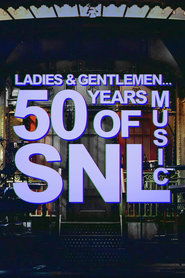 Untold stories behind the culturedefining and...
Untold stories behind the culturedefining and...Ladies & Gentlemen... 50 Years of SNL Music 2025
Untold stories behind the culture-defining and newsmaking musical performances, sketches and cameos of the past 50 years.
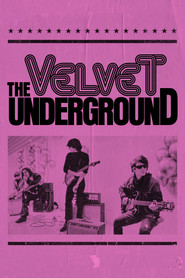 Experience the iconic rock bands legacy...
Experience the iconic rock bands legacy...The Velvet Underground 2021
Experience the iconic rock band's legacy in the first major documentary to tell their story. Directed with the era’s avant-garde spirit by Todd Haynes, this kaleidoscopic oral history combines exclusive interviews with dazzling archival footage.
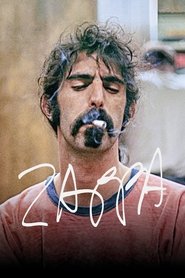 With the help of more than 10000...
With the help of more than 10000...Zappa 2020
With the help of more than 10,000 dedicated Zappa fans, this is the long-awaited definitive documentary project of Alex Winter documenting the life and career of enigmatic groundbreaking rock star Frank Zappa. Alex also utilizes in this picture thousands of hours of painstakingly digitized videos, photos, audio, writing, and everything in between from Zappa's private archives. These chronicles have never been brought to a public audience before, until now.
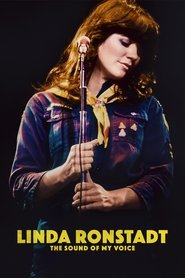 With one of the most memorably...
With one of the most memorably...Linda Ronstadt: The Sound of My Voice 2019
With one of the most memorably stunning voices that has ever hit the airwaves, Linda Ronstadt burst onto the 1960s folk rock music scene in her early twenties.
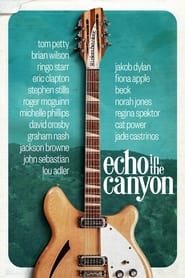 A look at the roots of...
A look at the roots of...Echo in the Canyon 2019
A look at the roots of the historic music scene in L.A.'s Laurel Canyon featuring the music of iconic music groups such as The Byrds, The Beach Boys, Buffalo Springfield, and The Mamas and the Papas.
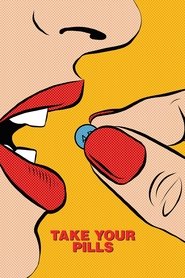 In a hypercompetitive world drugs like...
In a hypercompetitive world drugs like...Take Your Pills 2018
In a hypercompetitive world, drugs like Adderall offer students, athletes, coders and others a way to do more -- faster and better. But at what cost?
 When Howard Brookner lost his life...
When Howard Brookner lost his life...Uncle Howard 2017
When Howard Brookner lost his life to AIDS in 1989, the 35-year-old director had completed two feature documentaries and was in post-production on his narrative debut, Bloodhounds of Broadway. Twenty-five years later, his nephew, Aaron, sets out on a quest to find the lost negative of Burroughs: The Movie, his uncle's critically-acclaimed portrait of legendary author William S. Burroughs. When Aaron uncovers Howard's extensive archive in Burroughs’ bunker, it not only revives the film for a new generation, but also opens a vibrant window on New York City’s creative culture from the 1970s and ‘80s, and inspires a wide-ranging exploration of his beloved uncle's legacy.
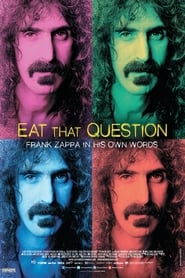 Utilizing potent TV interviews and many...
Utilizing potent TV interviews and many...Eat That Question: Frank Zappa in His Own Words 2016
Utilizing potent TV interviews and many forgotten performances from his 30-year career, we are immersed into Frank Zappa’s world while experiencing two distinct facets of his complex character. At once Zappa was both a charismatic composer who reveled in the joy of performing and, in the next moment, a fiercely intelligent and brutally honest interviewee whose convictions only got stronger as his career ascended.
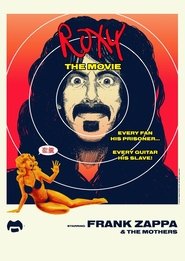 A Frank Zappa show goes way...
A Frank Zappa show goes way...Roxy: The Movie 2015
A Frank Zappa show goes way beyond a mere concert – it is an experience…a flight of improvisation, musicianship, and cerebral cynicism. An unparalleled Composer and Guitarist, Zappa redefined rock n roll paradigms by introducing into the mix his favorite influences from classical music, jazz, blues, doowop, traditional and non-traditional music. And he did so with unparalleled humor and audacity. But it was the music itself that influenced generations of musicians and, quite frankly, blew minds. Roxy: The Movie, filmed over three nights in December 1973, at the Roxy Theatre in Hollywood, CA, is a powerful display of this experience, and reveals what made him such a pioneering musical revolutionary.
 In the feature documentary Summer 82 When...
In the feature documentary Summer 82 When...Frank Zappa - Summer '82: When Zappa Came to Sicily 2014
In the feature documentary, Summer 82 - When Zappa Came to Sicily, filmmaker and Zappa fan Salvo Cuccia tells the behind-the-scenes story of Frank Zappa's star-crossed concert in Palermo, Sicily, the wrap-up to a European tour that ended in public disturbances and police intervention. Cuccia had a ticket to the concert but never made it. Thirty years later, collaborating with Zappa's family, he re-creates the events through a combination of rare concert and backstage footage; photographs; anecdotes from family, band members, and concertgoers; and insights from Zappa biographer and friend Massimo Bassoli. The story is also a personal one, as Cuccia interweaves the story of Zappa's trip to Sicily with his own memories from that summer.
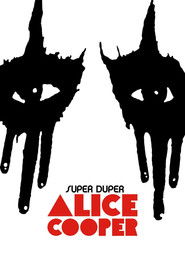 Emerging from the Detroit music scene...
Emerging from the Detroit music scene...Super Duper Alice Cooper 2014
Emerging from the Detroit music scene of the 1970s in a flurry of long hair and sequins, Alice Cooper restored hard rock with a sense of showmanship, while simultaneously striking fear into the hearts of Middle America with the chicken-slaughtering, dead-baby-eating theatrics that would cement his identity as a glam metal icon. Meticulously crafted from rare archival footage, Super Duper Alice Cooper tells the story of the man behind the makeup, Vincent Furnier, the son of a preacher, who got caught in the grip of his own monster.
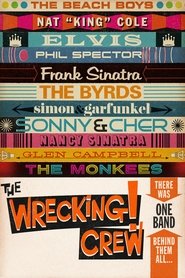 A celebration of the musical work...
A celebration of the musical work...The Wrecking Crew 2008
A celebration of the musical work of a group of session musicians known as "The Wrecking Crew." a band that provided back-up instrumentals to such legendary recording artists as Frank Sinatra, The Beach Boys, and Bing Crosby.
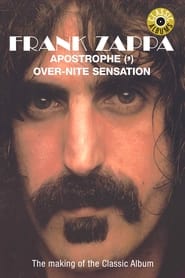 This episode focuses on Zappas early 70...
This episode focuses on Zappas early 70...Classic Albums: Frank Zappa - Apostrophe (') Over-Nite Sensation 2007
This episode focuses on Zappa's early 70s albums, Overnight Sensation (1973) and Apostrophy (') (1974). Together they encapsulate Zappa's extraordinary musical diversity and were also the 2 most commercially successful albums that he released in his prolific career. Included are interviews, musical demonstrations, rare archive & home movie footage, plus live performances to tell the story behind the conception and recording of these groundbreaking albums. Extras include additional interviews and demonstrations not included in the broadcast version, 2 full performances from the Roxy in 1973 and Saturday Night Live in 1976, and new full live performance done specially for these Classic Albums.
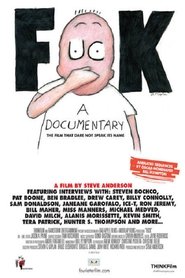 A documentary on the expletives origin...
A documentary on the expletives origin...Fuck 2006
A documentary on the expletive's origin, why it offends some people so deeply, and what can be gained from its use.
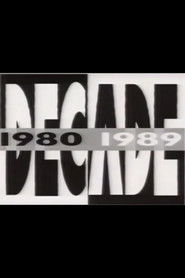 Interviews with personalities including John Mellencamp...
Interviews with personalities including John Mellencamp...Decade 1989
Interviews with personalities including John Mellencamp, Spike Lee, Lou Reed, Roseanne Barr, David Byrne, George Michael and more, as they reflect on the 1980s.
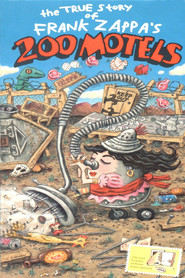 A onehour documentary on the making...
A onehour documentary on the making...The True Story of Frank Zappa's 200 Motels 1988
A one-hour documentary on the making of Frank Zappa's bizarre 1971 comic musical. Vintage private footage from Frank's personal archives plus behind-the-scenes of the actual shooting and recording. With Ringo Starr, Theodore Bikel, Keith Moon and such songs as "Sleeping in a Jar," and "Strictly Genteel." The inside history of the first feature-length film to be shot on video in 6 days.
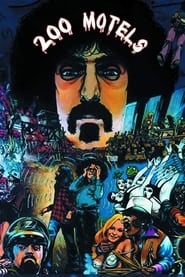 Touring makes you crazy Frank Zappa...
Touring makes you crazy Frank Zappa...200 Motels 1971
"Touring makes you crazy," Frank Zappa says, explaining that the idea for this film came to him while the Mothers of Invention were touring. The story, interspersed with performances by the Mothers and the Royal Symphony Orchestra, is a tale of life on the road. The band members' main concerns are the search for groupies and the desire to get paid.
 Long considered a cult classic Mondo...
Long considered a cult classic Mondo...Mondo Hollywood 1967
Long considered a cult classic, "Mondo Hollywood" captures the underside of Hollywood by documenting a moment in time (1965-67), when an inquisitive trust in the unknown was paramount, hope for the future was tangible and life was worth living on the fringe. An interior monologue narrative approach is used throughout the film, where each principal person shown not only decided on what they wanted to be filmed doing, but also narrated their own scenes. The film opens with Gypsy Boots (the original hippie vegan - desert hopping blender salesman), and stripper Jennie Lee, working out 'Watusi-style' beneath the 'Hollywood' sign -- leading into the 'sustainable community' insight of Lewis Beach Marvin III, the S&H Green Stamp heir, who lived in a $10 a month garage while owning a mountain retreat in Malibu.
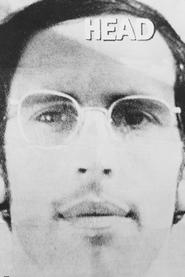 In this surrealistic and freeform followup...
In this surrealistic and freeform followup...